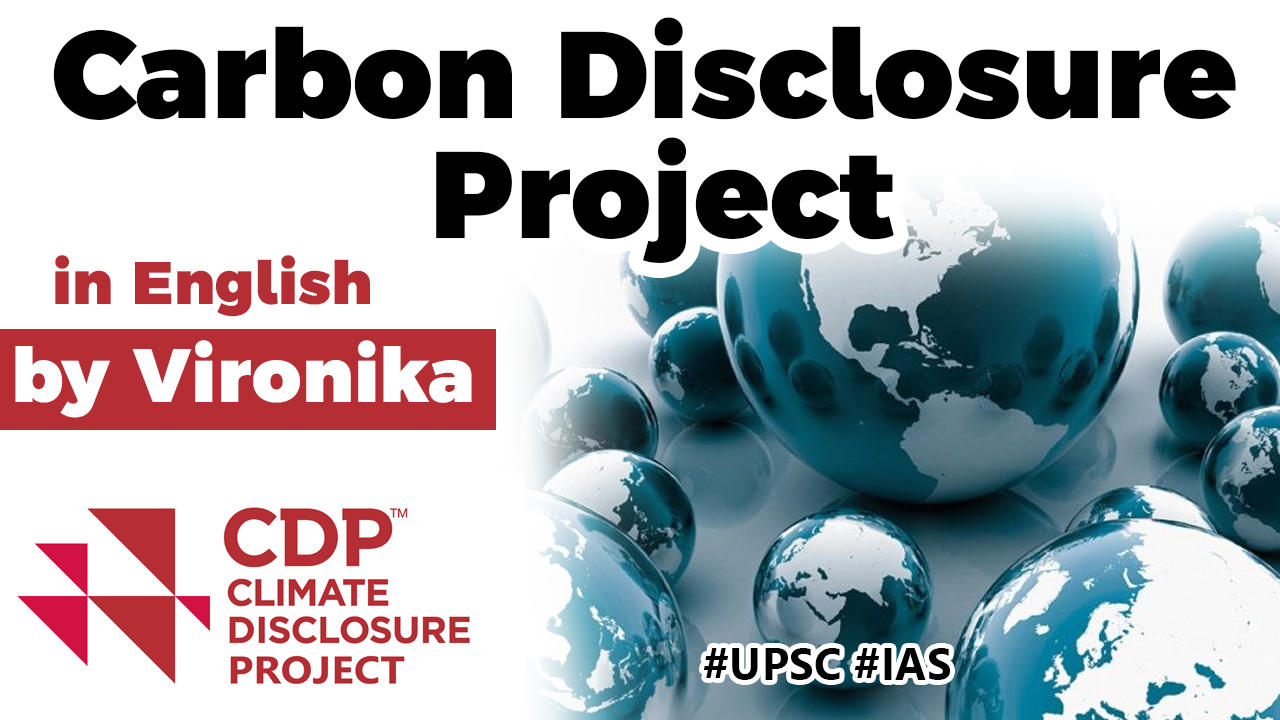- CDP is published by the Global Reporting Initiative.
- It is aimed at measuring the carbon reduction activities undertaken by different companies and firms operating in various countries across the globe.
- India secured the 5th spot on the project report.
- The CDP Report 2019 said that a total of 58 companies shared details about the environment-related activities undertaken by them in this year.
- The US topped the annual CDP report with 135 companies disclosing their climate-related activities, followed by Japan in the second position with 83 companies and the UK in the third position with 78 countries.
- While France was placed fourth with 51 companies disclosing their details, India was placed fifth with 38 companies committing to the science-based targets.
- In 2018, India had only 25 companies committing to the SBTs.
- India was ranked 5th, ahead of Germany and Sweden.
- India is the first developing economy with a maximum number of companies committing to the science-based targets.
- The boards of 98% of the firms directly monitor climate change risks with top management integrating these concerns in performance evaluation.
- 2/3rd of the 59 firms that were surveyed use climate analysis tools to formulate their business strategies.
- Improvement in disclosure rate has primarily been driven by investors who are actively pushing companies to reveal climate risks and take steps to reduce their carbon footprint.
- Among the key focus areas of Indian firms is renewable energy. According to the report, 23 companies reported renewable energy targets in 2019, a 44% rise over 2018. Of these, Infosys, Dalmia Cement and Tata Motors have reported 100% RE consumption.
Fall in India’s CO2 Emissions
- According to an analysis published in ‘Carbon Brief’, Carbon dioxide (CO2 ) emissions in India are set to grow at their slowest in the year 2019, which is a rise of only 2% from the year 2018. The 2% rate is a lower rate than any annual increase since 2001.
- This fall will help India in achieving its renewable energy targets. The targets of India’s Nationally Determined Contributions (NDCs) include:
- To reduce the emissions intensity of its GDP by 33 to 35% by 2030 from 2005 levels.
- To achieve about 40% cumulative electric power installed capacity from non-fossil fuel based energy resources by 2030. Global Concentration of Atmospheric CO2
- On May 11, 2019 global concentration of carbon dioxide in the atmosphere was measured to have crossed the 415 parts per million (ppm) mark for the first time.
- The levels are as measured from Mauna Loa observatory in Hawaii.
- On every subsequent day from May 11, the daily average atmospheric concentration of CO2 has remained over that level.
- The rapidly rising concentration is one of the key indicators of the manner in which the planet has been warming up.
- The rapid rise in the atmospheric concentrations is due to the fact that C02 has a very long lifespan in the atmosphere, 100 to 300 years.
- So, even if the emissions were to reduce to zero all of a sudden, it would have no impact on the atmospheric concentrations in the near term.
- About half of emitted carbon dioxide is absorbed by plants and oceans, leaving the other half to go into the atmosphere.
- An addition of about 7.5 billion tonnes carbon dioxide to the atmosphere leads to a 1 ppm rise in its atmospheric concentration.
- The global community’s effort is to keep the rise in average surface temperatures below 2ºC higher than during pre-industrial times.
- The carbon dioxide concentration level corresponding to a 2ºC rise in global temperatures is generally understood to be 450 ppm.
5 Initiatives Are Helping India Reduce Its Carbon Footprint
- NRDC’s India Initiative on Climate Change and Clean Energy
- PepsiCo India’s Waste to Wealth initiative
- Save Himalaya Campaign
- National Action Plan on Climate Change
- National Wetland Conservation Program
Latest Burning Issues | Free PDF






















 WhatsApp
WhatsApp